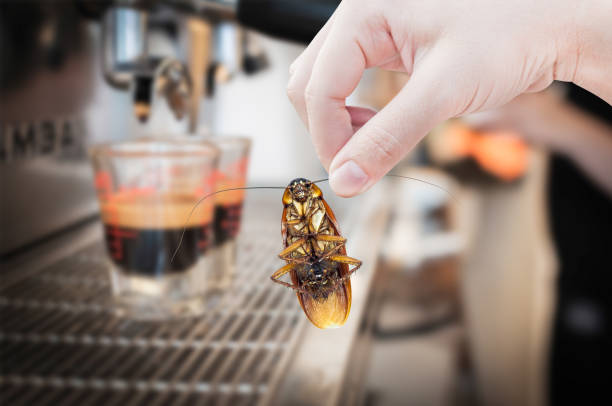
Managing the risk of the presence of pests is a major concern for professionals. Flying or crawling insects, rats, mice, field mice,… all proliferate rapidly and nest in many places, even the most inaccessible places.
Their presence causes many material and health inconveniences and can hurt the brand image. They even represent a real danger for operating costs and income in certain environments conducive to their development, such as the ago-food industry. How to fight pests in business? This article provides an overview of solutions for getting rid of all kinds of pests and parasites or anticipating a possible infestation.
There is a wide variety of pests capable of colonizing professional premises: flying and crawling insects, rodents, xylophages, and birds. Many of them carry germs and parasites and feed on food residues or animal or human blood. They can even, in the most serious cases, transmit diseases. Materials such as wood or stone are also food and are not spared. The damage is considerable to furniture, textiles, walls, cupboards, beams, frames, attics, partitions, crawl spaces, beds, roofs, balconies, etc. Fortunately, there are various insect and rat control solutions.
Professional pest control products
To act effectively against pests, manufacturers offer a full range of insecticides, rodenticides, larvicides, and other insect repellents (wasps, hornets, mosquitoes, flies, textile moths, food moths, cockroaches, fleas, cockroaches, mites, ticks, ants, termites, moths, bedbugs, rats, mice, field mice, etc. These products cover a broad spectrum of action. They prevent infestations, treat observed infestations, prevent their spread, and prevent future risks. They are found in different forms, most of them ready to use: aerosol, glue insect killer, smoke bomb, electric diffuser, trap, gel, powder, granules, etc.
The sanitation plan
In terms of hygiene, legislation requires companies to implement procedures to control pests. They are only subject to an obligation of results and must therefore draw up a rat and insect control plan. This is called the sanitation plan. It is sometimes necessary to call on specialists for curative or preventive purposes to control the development of pests, in particular within the framework of HACCP procedures (agri-food, pharmaceutical, cosmetics, etc.). Specialized companies have expertise in issues specific to each professional sector. They propose interventions, processes,
- diagnosis and formulation of recommendations for the improvement of hygiene practices,
- definition of control techniques aimed at destroying pests (secure bait stations),
- advice on how to eliminate the conditions conducive to their circulation,
- development of a sanitation plan.
Pest control: technological innovations
The prevention and fight against pests is no exception to the evolution of regulations in terms of biocidal products. Besides traditional chemical treatments, we increasingly see the emergence of new biological and non-toxic innovations that take advantage of technological and scientific progress. These latest-generation solutions make it possible to implement measures to control pests that are often more effective without harming the environment and human health:
- traps and devices connected 24/7,
- LED electric destroyer against flying insects,
- thermal treatment by heat or cold,
- oxygen deprivation (anoxia) of many valuables, containing wood, fibers, cellulose or metals,
- fluorescent gels to identify rodent routes and shelters,
- biological pesticides intended to repel pests or interfere with their reproduction.
Read More: Know-How to Plan an Ecommerce Content Marketing Strategy


